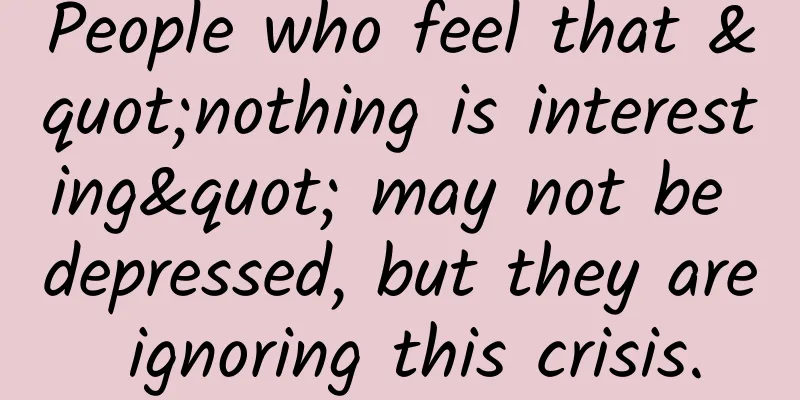The beginning and end of whether the flow is cleared or not

|
On October 1, the three telecom operators will announce that they will not reset the monthly traffic. This is a response to the Prime Minister's instructions at the request of the Ministry of Industry and Information Technology. Of course, I believe that the media will not praise this matter, and the basic public opinion will still be dissatisfied, because this traffic reset does not mean not resetting it all the time, but not resetting it for the current month, which is far from everyone's expectations, and the benefits to consumers are also limited. Putting these aside, let me sort out the ins and outs of the traffic reset. ***Basic solution without clearing the volume This plan is basically like this. The traffic of the month will not be reset to zero, which means the main traffic will not be reset to zero. For example, if you subscribe to a 4G package, which includes 3GB of traffic, and you use 2GB in a month, at the end of the month, the remaining 1GB of traffic will not be reset to zero, but will be transferred to the next month. In the next month, you will use this 1GB of traffic first, and after this 1GB of traffic is used up, you can use the traffic in your package. If you do not use up 1GB this month, but only use 500MB, then the remaining 500MB will be reset to zero, and you can transfer to the next month with only 3GB of traffic. Secondly, if you have used 3GB of traffic that month and it is still not enough, you purchase an additional package of 500MB, but only used 300MB and still have 200MB left, sorry, this 200MB cannot be transferred to the next month and will still be cleared. In short, this traffic will not be reset to zero, it means it will not be reset for the current month, you can only use it for one extra month, and only the mainstream traffic can be used, other preferential traffic and additional packages cannot be used. 2. Why is the traffic reset to zero? I often hear some questions, why does the traffic have to be reset? The reason is very clear. When we go to the supermarket, there are products sold individually, and there are also products sold in packages. The single product is expensive, and the package is cheap. Merchants want small profits but quick turnover to increase sales. It is also because of the package sale that the products are sold as soon as possible, and the sales and storage costs will be reduced. The package of telecom operators is also the same. Originally, telecom operators provide a billing model based on the amount of use, but why do they still have packages? It is to ask you to guarantee how much you use in a month. Because you need more, I will lower the price to attract you to use more. If you buy a 3GB package for a month, you must use it up as promised, and you will also have to pay this fee if you don’t use it up. Otherwise, if you subscribe to a 3GB package and enjoy the 3GB preferential price, but you don’t use it, the operator will certainly not accept it. In this situation, we often hear some voices saying, "I bought 3GB of traffic, it's mine, why do you want to clear it?" First of all, this is a contract. The operator does not have other plans for you. You subscribe to a cheaper plan, but are unwilling to abide by the agreement to use it all up. This is a violation of the contract. It is not only unreasonable, but also rogue logic. In addition, telecommunications traffic is completely different from buying one item. Some people say that I bought the product in bulk, and the price was cheap, but these things are all mine, and you can't take them away. It seems to make sense, but in commodity sales, whether you buy by piece or by bulk, the product belongs to you completely, and the management, storage, and loss of the product are all yours in the future, and have nothing to do with others. The production and consumption of products are separate, but services are completely different. Services are produced and consumed at the same time, and they are consumed while they are produced. Therefore, the sale of services must be added with time. For example, if you go to wash your feet, it costs 68 yuan for 60 minutes per hour, and you wash for 30 minutes and leave first. After a few days or even a few months, you want to enjoy the remaining 30 minutes of service, which is not acceptable because the other party needs to reorganize production. The same is true for telecommunications services. Sales must be added with time limits, because when you consume, others must produce it, and the production cost changes with time. It may be that after this time, the production cost is not the same cost, because the service must be completed within a certain time. Therefore, the basic telecommunications services provided by operators around the world are charged based on usage. Packages are generally calculated on a monthly basis, and if the monthly usage is not fully utilized, it will be reset to zero. 3. Is it an international practice to not clear the traffic flow? When we talk about some issues, we often talk about how foreign companies are doing. Regarding the fact that traffic is not cleared, some people will also cite foreign examples. So is foreign traffic really cleared? What is the overall situation in the world? It should be said that, in terms of the basic situation around the world, the traffic is reset to zero on a monthly basis. This is a basic principle. The traffic packages of most telecom operators in the world are reset to zero on a monthly basis. According to a survey, only five telecom operators in the United States, Japan, and South Korea provide services that do not reset traffic. This is a market competition method that telecom operators actively choose, and it is not a common principle recognized by everyone. The method of not resetting traffic used by these operators is also the method currently used by Chinese telecom operators, that is, if the traffic is not reset in the current month, the traffic can be transferred to the next month. However, if it is not used up in the next month, it must be reset. There is no such thing as eternal accumulation. In fact, this is essentially just a buffer period for users. It is not what users expect. The traffic I bought is always mine, and I can use it whenever I want. In addition, these operators will have some restrictions on traffic transfer. For example, if your remaining traffic is less than 1GB, sorry, it cannot be transferred. You must have more traffic to transfer. In short, not clearing the data flow is not an international practice. Only a few telecom operators adopt it, and there are many restrictions on its use. It is not the case that the data I buy is mine and I can use it whenever I want. China's current approach is consistent with the approach of international operators that use data flow clearing. 4. Which users will benefit if their traffic is not cleared? In such a case, it is not easy to talk about user benefits. Which users will benefit? Suppose a user subscribes to a 3GB data package for a month. He uses 2GB of data in a month, and there is 1GB of data left. This 1GB of data is transferred to the next month. He uses 4GB of data in the next month. At this time, he has to buy another 1GB data package. Now he can choose not to buy it and use the data for the previous month. This is very suitable for him. He does not need to pay for the additional 1GB of data. But for most people, the above situation is unlikely. Suppose a person subscribes to 3GB of data, uses 2GB, and has 1GB left. In one month, he still uses 2GB of data in the next month. He can use the data of the previous month and transfer the remaining 2G to the next month. In the next month, he still uses 2GB of data, and his original 3GB of data can be transferred. In fact, it is difficult for him to benefit from this process. And users may always adjust their data packages. Therefore, for most people, not clearing the data is mainly a spiritual comfort. If you really want to save money, the cost savings from this are very limited. 5. What are consumers’ demands and how should they be met? Why bother to clear the data flow after all this trouble when it doesn't actually reduce your expenses? In fact, what everyone wants is to spend less money, and the simplest and most direct way to spend less is to directly reduce the tariff, reducing the data flow fee by 10 yuan per GB, which is more effective than anything else. Can the tariffs be reduced? Of course, you can. If you want to reduce the tariffs, stop talking to me about breaking the monopoly, competition, private capital and foreign operators. Only fools think that this will work. There are only two things that really work. One is to quickly adopt new technologies. 1GB of traffic cost 10,000 yuan in the 2G era, 300 yuan in the 3G era, and only 50 yuan in the 4G era. Can it be reduced to 10 yuan, or even 5 yuan? Of course it can. It just takes time. The other thing is to quickly expand the user base. The construction of the 4G network cost 100 billion yuan, and depreciation over 10 years means 10 billion yuan per person. There are 100 million users. These 100 million users have to bear the 10 billion cost, so the tariff will not be cheap. When the number of users grows to 300 million, the cost is still 100. In this way, the cost borne by users is greatly reduced, and of course the tariff can be reduced. Introducing foreign operators and private capital, as long as the technology and network are still the same, you can't reduce the price. Of course, there is another way, administrative order. Of course, the enterprise is a state-owned enterprise, as long as there is no profit, it is also OK to directly reduce the price, after all, the whole people will pay for it. |
>>: Cook's Views on the Reformation
Recommend
The two core elements of product promotion: content and channels
Product promotion is a difficult problem. It look...
I want to develop an APP, what should I do if I don’t have a backend?
[[155146]] What should I do if I just started a b...
Make money by operating Tik Tok, here are the detailed methods!
Yesterday I introduced to you a money-making proj...
AppStore latest review guidelines 2017
Apps are changing the world, enriching people’s l...
2017 e-commerce marketing report! What are the new ways to play?
The transaction volume on Double 11 this year hit...
Ten Years of Litigation: iPod DRM, Jobs, and 8 Million Users
[[123745]] Old iPod users may remember that Apple...
How much does it cost to use China Mobile's 10,000M bandwidth exclusively?
How much does it cost to use China Mobile's 1...
Meituan Waimai iOS App Cold Start Management
1. Background Cold start duration is an important...
Note: You can breathe normally while reading this article
Review of this article: Zhang Ying, emergency sci...
Changan Oushang X7 PLUS interprets technological equality, 100,000-class SUV enjoys 300,000-class smart cockpit
The automotive industry is in a period of great c...
How to attract traffic to Toutiao today? Violent traffic diversion methods for headlines
When it comes to traffic, we naturally think of D...
Director Xiao’s Wealth Creation Circle 2.0: [Small and Beautiful Wealth Creation Circle], 108 scientific ways to create wealth
Director Xiao’s Wealth Creation Circle 2.0 [Small ...
Big Bear and Little Bear are fighting? Is there no room for two bears in one mountain?
Recently, the fight between two Asian black bears...
[Aoyama Yuki] Japanese JK uniform youth girl campus portrait photography tutorial
【Aoyama Yuki】Japanese JK Uniform Youth Girl Campu...









